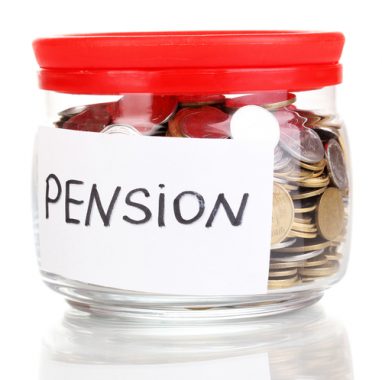New Government proposals set to give GPs greater control over their pensions

The Government has set out proposals to increase the flexibility of NHS pensions after it admitted the current NHS pension system has created an incentiveof for a third of GPs and consultants to refuse extra shifts.
In a consultation released today, the Government offered NHS pensions scheme members the option to tailor their pension accrual to the level they want alongside increasing or decreasing their accrual level late in the scheme year.
Doctors will also be able to ‘smooth’ spikes in pensionable income, such as from large pay increases, by phasing in how much this increase counts towards their pensionable income.
The Government also said any unused employer contributions – and whether to recycle them – will remain at the discretion of employers.
However, the BMA has warned these plans will ‘not resolve’ the issues with the NHS pension scheme.
Today’s proposals replace previous Government plans to introduce a 50:50 option in which doctors would have been able to halve their pension contributions and get half the rate of pension growth in return.
But those were scrapped in favour of providing more flexibility in the level of pension contribution doctors can make – and also offering the possibility for employers to ‘recycle’ their contributions into the overall salary – after the Government argued the original proposals did not ‘provide sufficiently broad flexibility for individuals to balance their pay, pension growth and tax liability’.
Under the new consultation, doctors could be able to choose their personal accrual level in 10% increments at the start of the year and increase this level towards the end of the year, once they know their likely earnings.
High earners who have a large rise in their pensionable pay will also be able to avoid a spike in pension contributions by phasing in how much this rise counts towards their pensionable income. For example, a 10% pay rise could be phased in over three years, meaning only 50% of that rise would count towards pensionable pay in the first year, 75% in the second and 100% in the third.
The Government also set out plans to commission a modeller to help doctors assess options for using these flexibilities and tailor them to their personal circumstances.
The consultation said: ‘The department intends that this support will be available from the end of this calendar year in good time, subject to the outcome of this consultation, for the introduction of the new pension flexibilities.’
However, the BMA has said they are disappointed the Government did not consider removing the annual allowance altogether nor require employers to recycle any unused contributions.
BMA consultants committee deputy co-chair Dr Phil De Warren-Penny said: ‘We are encouraged by the news of the consultation – it’s something we have pressed the Government on for some time. It’s a useful contribution to the work that is needed to reform pension taxation laws, but while the options within this consultation will help alleviate the issues, they will not resolve it.
‘To succeed we need to see NHS employers doing their part and recycling all of the employer contributions. If they don’t it’s still an effective pay cut for doctors for doing extra shifts. The real heart of the problem is the tapered annual allowance which must be removed along with the annual allowance and lifetime allowance. Only when these are removed can doctors return to working extra shifts to help remove waiting list backlogs and support colleagues where there are rota gaps, without fear of receiving huge tax bills.’
At the moment, the annual allowance limits the amount people are allowed to increase their pensions pot by (£40,000) before it incurs a tax charge.
The allowance starts reducing where individuals earn a yearly net income exceeding £110,000 – or an adjusted income exceeding £150,000 – with the taper stopping at a minimum annual allowance of £10,000.
The BMA previously warned that this has prompted GPs to cut their hours, leave the profession or retire early to avoid being penalised.
The consultation said: ‘The Government recognises that the interaction between the NHS pension scheme and the pensions tax regime is driving a behavioural response from NHS clinicians to reduce their work commitments.
‘The Government has also listened to concerns that this behavioural response is, in turn, impacting on frontline NHS service delivery and patient care. In response, the proposals outlined in this consultation seek to address these issues by giving NHS clinicians facing these much greater pension flexibilities.’
It comes after Simon Stevens warned that the Government proposals to make pensions more flexible are not enough to ensure the sustainability of GP services.
Pulse October survey
Take our July 2025 survey to potentially win £1.000 worth of tokens












